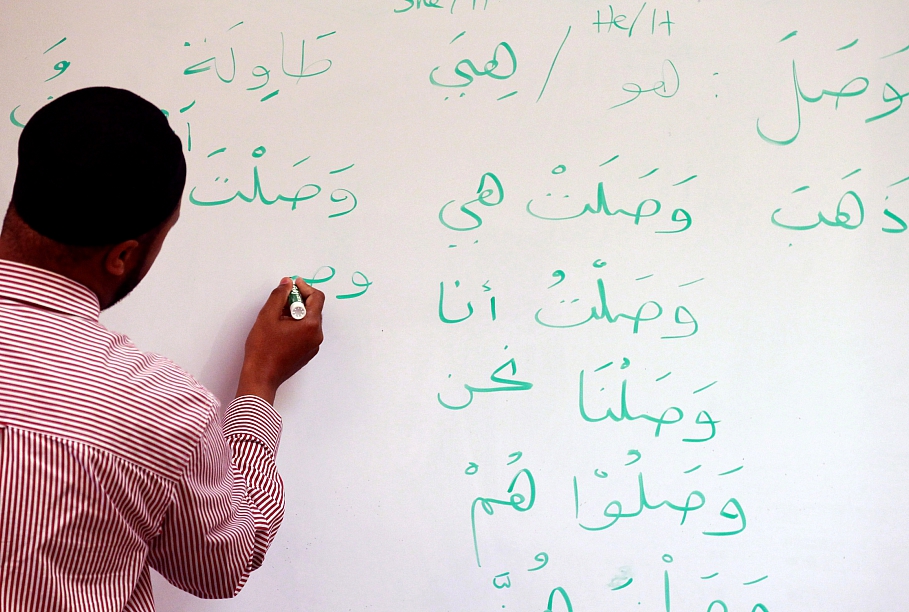"Arabic is very difficult to perceive to an European, it's difficult to understand and has to be studied for a long time. It is very different. It belongs to another language group," said Kleinhofa.
The list of differences is endless, and at that there are two kinds of Arabic for the foreigner to study. One of them is literary Arabic, which has not underwent changes since practically the sixth century.
"It is read, written, studied in schools, like a foreign language. It's not anyone's native language. They don't speak it at home. Arabs don't speak it, as it sounds more like the poetry of Rainis [would to Latvian ears]," Kleinhofa said.
The other kind is dialect Arabic. There are many dialects, which function as the day-to-day variety of Arabic.
The phonetic system of Arabic is very different from that of Latvian. "There are many sounds that Latvians can learn quickly, like fortis and lenis consonants," the teacher said.
"However, when we get to three [ways of pronouncing] 'h'... Arabs can differentiate between the three, like we can between c, b, and l. But we cannot hear the difference," she said, adding that the pronunciation can completely change the meanings of words.
However, Arabs have fewer problems learning Latvian, as they have all the sounds that we have, Kleinhofa said.
"Palatalizations and diphthongs are difficult for Arabs. [..] There was a Russian girl, Yulia, the Arabs called her Iolla, they couldn't pronounce it," she said.
Despite this, she added that they have no problems with Latvian grammar, as it's very complex in Arabic too.





























